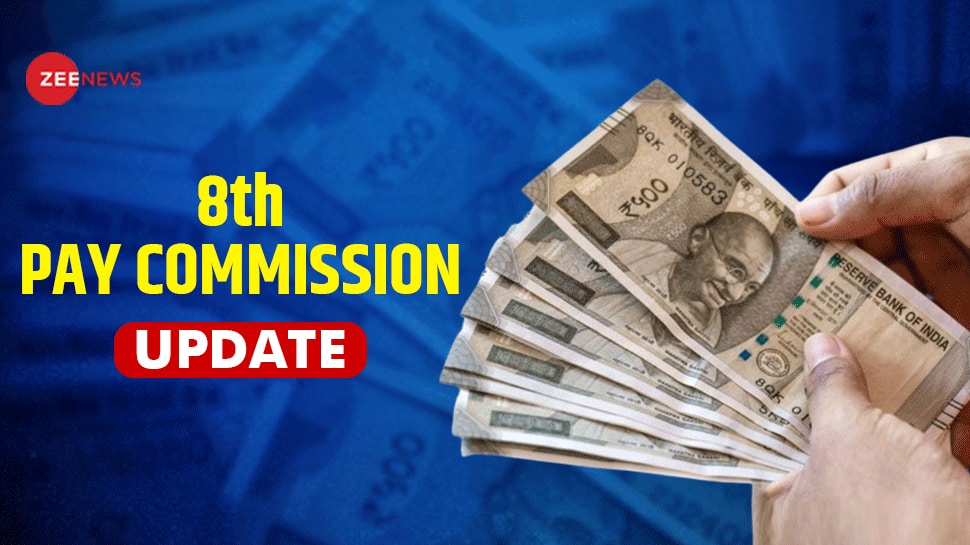Business
Tories vow to cut energy bills by 20% by scrapping carbon tax and wind subsidies

The Conservatives have said they would cut energy bills by 20% by axing the carbon tax and abolishing wind farm subsidies.
Shadow energy secretary Claire Coutinho claimed these two policies would save the average family £165 a year.
Speaking at the Conservative Party Conference, Ms Coutinho told members that scrapping the carbon tax would “instantly” cut bills by almost £8 billion.
She said: “The next Conservative Government will axe the carbon tax on electricity generation.
“When Ed Miliband blames gas for high energy bills, what he doesn’t tell you is that over 30% of what we pay for gas power is not to pay for fuel, but to pay for a carbon tax that the Government chooses to impose.
“Now, we know that we’ll need gas to keep the lights on for decades, so it just adds extra costs to our bills for no reason.
“But here’s the rub: the carbon tax inflates the cost of almost all other types of electricity too.
“So, all the wind and solar farm owners pocket those higher prices as higher profits…
“Axing the carbon tax would cut bills instantly by almost £8 billion a year.”
Ms Coutinho branded wind farm subsidies “the biggest racket going” as she promised her party would scrap them if they won the next general election.
She said: “We’ll scrap Ed Miliband’s old rip-off wind farm subsidies.
“Back in 2008, Ed Miliband in his infinite wisdom chose to double the subsidies on offer for wind farms.
“That means when the wind blows, there are wind farms getting up to three times the market price of electricity, and you’re paying for that through your bills. It’s the biggest racket going.
“We closed the scheme when we were in office, but we’ll go further and say we must scrap those subsidies for good.
“Our energy system is not here to prop up the profits of multimillion-pound wind developers at billpayers’ expense. It’s here to deliver cheap, reliable energy for the country.
“Together, our policies to axe the carbon tax and scrap Ed’s rip-off wind subsidies would cut people’s electricity bills by 20%.
“The average family will save £165 a year off their electricity bill.”
Ms Coutinho also told members that the Conservatives would scrap Great British Energy, branding it energy secretary Ed Miliband’s “vanity project”.
She said that Mr Miliband promised that Great British Energy would lead to a “mind-blowing” reduction in bills, but that this has not come to pass.
The shadow energy secretary said: “Only Ed Miliband could launch an £8 billion energy company that won’t produce any energy.
“Let’s call it what it is: a vanity project that won’t cut bills. So we will scrap it.”
Ms Coutinho reiterated the Conservatives’ pledge to repeal the Climate Change Act, claiming it is their “duty” to change the law, as it is “not working in the national interest”.
She also emphasised that a Tory government would scrap the ban on new oil and gas licences, reverse the energy profits levy and “back the North Sea”, saying: “As long as we need gas, as much as possible should come from Britain.”
The shadow energy secretary also hit out at Reform UK, saying their claim that abandoning net zero could save households £1,000 per year is “garbage”.
She said: “The average bill is only £850. What’s he going to do, go round writing people cheques?
“If you think any politician can promise you electricity for free, then I’ve got a bridge to sell you.”
Responding, a Labour Party spokesperson said: “The Conservatives simply want to repeat the same failed energy policies which saw the worst cost-of-living crisis in a generation happen on their watch.
“Their anti-growth, anti-jobs, anti-investment stance on cancelling clean energy investment would make Britain more reliant on insecure, expensive fossil fuels, keeping bills high for generations to come.
“And just last week their pledge to scrap the Climate Change Act united a remarkable coalition of business bosses, workers, faith leaders, and even Conservative politicians in opposition to their plans.
“It’s the same old Tories, with the same old policies. They didn’t work then and you can’t trust them now.
“Only this Labour Government is delivering record investment in clean, homegrown renewables and nuclear that will help bring down bills for good.”
Dr Simon Cran-McGreehin, head of analysis by the Energy & Climate Change Unit (ECIU), argued that renewables reduce the overall cost of electricity by pushing gas power out of the market.
He said: “People may not realise it, but their bills would be higher today without the increasing role that wind and solar farms running on free sunshine and wind are playing by reducing our dependence on gas power.
“This also means things could have been even worse during the peaks of the gas crisis, had it not been for renewables – indeed, anything that avoids gas generation helps to limit prices, including interconnectors and our old nuclear power plants.
“Prices can spike when wind is low and gas power plants come on, but this is more than made up for by the overall savings on prices that wind farms deliver the rest of the time.”
Business
Gold price soars to new record as US Federal Reserve faces fresh threats

The price of gold has soared to a new record high as concerns about fresh threats to the independence of the US central bank fuel demand for the asset.
The metal climbed by around 2% on Monday morning to a high of 4,600 US dollars (£3,415) per ounce, beating a previous record set in late December.
Rising gold prices typically indicate that investors are seeking out so-called safe haven assets.
These tend to carry less risk than other investments, such as stocks and shares, and often outperform financial markets during periods of turbulence.
Gold prices have shot up by about 70% over the past year, strengthening against broader economic and political uncertainty.
The latest rush to the precious metal came after US central bank chairman Jerome Powell said it was being threatened with a criminal indictment over his testimony about renovations at Federal Reserve office buildings.
It represents a significant escalation in President Donald Trump’s criticism of the Federal Reserve and its decisions not to cut interest rates as quickly as he would prefer.
Mr Powell said in a video statement that the threat of criminal charges undermined the Fed’s role and questioned whether monetary policy will in future be “directed by political pressure or intimidation”.
The news stoked fears that threats to the independence of the central bank were becoming more severe.
While gold prices soared, the US dollar was weakening against key currencies.
The pound was up by nearly 0.5% against the US dollar on Monday morning, to 1.346.
The euro was also up by about 0.4% against the US dollar, at 1.168.
Susannah Streeter, chief investment strategist at Wealth Club, said Wall Street has been “rattled by what’s being viewed as another assault on the independence of the US Federal Reserve”.
“It certainly marks a sharp escalation in the Trump administration’s criticism of the Fed and is unnerving investors given that an independent central bank is considered to be crucial to maintaining sound monetary policy, especially at a time when the mounting US debt pile is coming under scrutiny,” she said.
Chris Beauchamp, chief market analyst at IG, said the dispute “represents a major crisis for markets and has the potential to restart worries about the dollar and US monetary policy”.
The UK’s FTSE 100 took a step back after enjoying a run in recent weeks, having hit new record highs and surpassing the milestone 10,000 mark for the first time.
It was more or less flat by mid-morning on Monday at about 10,123 points.
Barclays was among the biggest fallers on the FTSE 100 on Monday, with its share price down by about 2.5%.
The UK-listed bank has been caught up in the reaction to Mr Trump calling for a one-year cap of 10% on credit card interest rates.
The president said Americans were being “ripped off” by high interest rates on credit and they should be limited from January 20.
Russ Mould, investment director at AJ Bell, said Barclays was one of the largest issuers of credit cards in the US.
“While consumers would love to see lower rates on credit cards, Trump may not be able to enact such a move without approval from Congress,” he said.
“It also raises questions about the knock-on effect of a cap on credit and whether a drop in associated earnings for lenders could lead to reduced availability of credit in general, forcing some consumers and businesses to seek more costly alternatives.”
Business
Ofcom investigates Elon Musk’s X over Grok AI sexual deepfakes

Laura CressTechnology reporter
 SOPA Images via Getty
SOPA Images via GettyOfcom has launched an investigation into Elon Musk’s X over concerns its AI tool Grok is being used to create sexualised images.
In a statement, the UK watchdog said there had been “deeply concerning reports” of the chatbot being used to create and share undressed images of people, as well as “sexualised images of children”.
If found to have broken the law, Ofcom can potentially issue X with a fine of up to 10% of its worldwide revenue or £18 million, whichever is greater.
X referred the BBC to a statement posted by its Safety account at the start of January: “Anyone using or prompting Grok to make illegal content will suffer the same consequences as if they upload illegal content.”.
Elon Musk later said the UK government wanted “any excuse for censorship” in response to a post questioning why other AI platforms were not being looked at.
The BBC has seen several examples of digitally altered images on X, in which women were undressed and put in sexual positions without their consent. One woman said more than 100 sexualised images have been created of her.
If X does not comply, Ofcom can seek a court order to force internet service providers to block access to the site in the UK altogether.
Technology Secretary Liz Kendall told the BBC she welcomed the body’s investigation and urged it to complete it as soon as possible.
“It is vital that Ofcom complete this investigation swiftly because the public – and most importantly the victims – will not accept any delay,” she said.
Kendall’s predecessor Peter Kyle told BBC Breakfast it was “appalling” that Grok had “not been tested appropriately”.
“The fact that I met just yesterday a Jewish woman who has found her image of herself in a bikini outside of Auschwitz being generated by AI and put online made me feel sick to my stomach,” he said.
Other MPs who have raised concerns include Northern Ireland politician Cara Hunter, who said she had decided to leave the platform.
Downing Street meanwhile said the government remains focused on “protecting children” but would keep its presence on X “under review”.
“I think we’ve been clear that all options are on the table,” the Prime Minister’s official spokesperson said.
‘Highest priority’
Ofcom will now examine whether X has failed to take down illegal content quickly when it became aware of it, and taken “appropriate steps” to prevent people in the UK from seeing it.
It said such illegal content included “non-consensual intimate images” and child sexual imagery.
It will also check whether X has used “highly effective age assurance” measures to stop children from seeing pornographic images.
The decision follows global backlash over Grok’s image creation feature, with both Malaysia and Indonesia temporarily blocking access to the tool over the weekend.
An Ofcom spokesperson did not give an indication on how long the investigation would take but said it would be a “matter of the highest priority”.
“Platforms must protect people in the UK from content that’s illegal in the UK,” they said.
“We won’t hesitate to investigate where we suspect companies are failing in their duties, especially where there’s a risk of harm to children.”
Lorna Woods, professor of internet law at Essex University, told the BBC it was “hard to predict” how quickly the investigation would move.
“Ofcom has a degree of choice in how fast – or slow – they take the investigation,” she said.
She said the regulator could apply for a business disruption order – a court order to block access to X in the UK – straight away rather than as a last resort, but only in “rare circumstances” in response to an ongoing problem.
Business
Ho hum holiday: Retail’s early results show modest growth in critical shopping season

People shop at a mall decorated with holiday lights in Manhattan on Dec. 18, 2025 in New York City.
Spencer Platt | Getty Images
Some retailers provided early holiday results on Monday that showed the crucial shopping season was solid, but didn’t blow away expectations.
Lululemon, which is preparing for a new CEO and staring down a proxy battle with its founder, said in a release it expects its holiday quarter to be “toward the high end” of its previously released guidance. Shoe maker Birkenstock and thrift store Savers Value Village also released lackluster early holiday results.
Lululemon said it expects fiscal fourth quarter revenue to be close to $3.60 billion and earnings to be close to $4.76 per share. Both figures are at the high end of the guidance the company released in December when it announced fiscal third-quarter earnings.
It made no changes to its previous guidance for gross margin, effective tax rate and selling, general and administrative expenses.
Shares were slightly higher in premarket trading.
“We remain focused on executing our action plan to drive improvement in our U.S. business and look forward to the opportunities in front of us,” finance chief Meghan Frank said in a statement.
When announcing last quarter’s earnings on Dec. 11, outgoing CEO Calvin McDonald said the company was “encouraged” by its early holiday performance but acknowledged wide discounting had driven demand during the Thanksgiving holiday period. When the shopping stretch ended, trends slowed, he said at the time.
Like other higher-end brands, Lululemon has historically been very selective with discounts, but it has used them more liberally in recent quarters to offload old merchandise and styles that weren’t resonating with shoppers.
During its fiscal third quarter, margins fell by 2.9 percentage points, due primarily to higher tariffs and the bigger markdowns, it said at the time.
Birkenstock, which didn’t provide specific holiday-quarter guidance last year, said it expects sales in the quarter ended Dec. 31 to grow 11% to €402 million ($470 million). The results appeared to disappoint investors, with shares falling about 3% in premarket trading.
Savers Value Village saw sales grow 8.4% during its holiday quarter, with comparable sales up 5.4%, excluding the impact of an extra week the company had in its calendar. Despite relatively strong growth, the company only reaffirmed its fiscal 2025 adjusted net income and EBITDA outlooks. Shares were slightly higher in premarket trading.
The early results, which were announced ahead of the annual ICR conference in Orlando, Florida, show what many analysts had expected for the holiday shopping season. Wall Street largely anticipated results would be solid, but they wouldn’t show massive gains in consumer spending.
The National Retail Federation previously forecasted retail sales in November and December would rise between 3.7% and 4.2% compared to 2024. That’s solid growth, but when higher prices from tariffs are taken into account, some analysts expect volume growth to be largely flat.
-

 Politics5 days ago
Politics5 days agoUK says provided assistance in US-led tanker seizure
-

 Entertainment1 week ago
Entertainment1 week agoMinnesota Governor Tim Walz to drop out of 2026 race, official confirmation expected soon
-

 Entertainment5 days ago
Entertainment5 days agoDoes new US food pyramid put too much steak on your plate?
-

 Entertainment5 days ago
Entertainment5 days agoWhy did Nick Reiner’s lawyer Alan Jackson withdraw from case?
-

 Sports1 week ago
Sports1 week agoVAR review: Why was Wirtz onside in Premier League, offside in Europe?
-

 Business5 days ago
Business5 days agoTrump moves to ban home purchases by institutional investors
-

 Sports1 week ago
Sports1 week agoFACI invites applications for 2026 chess development project | The Express Tribune
-

 Business1 week ago
Business1 week ago8th Pay Commission: From Policy Review, Cabinet Approval To Implementation –Key Stages Explained






